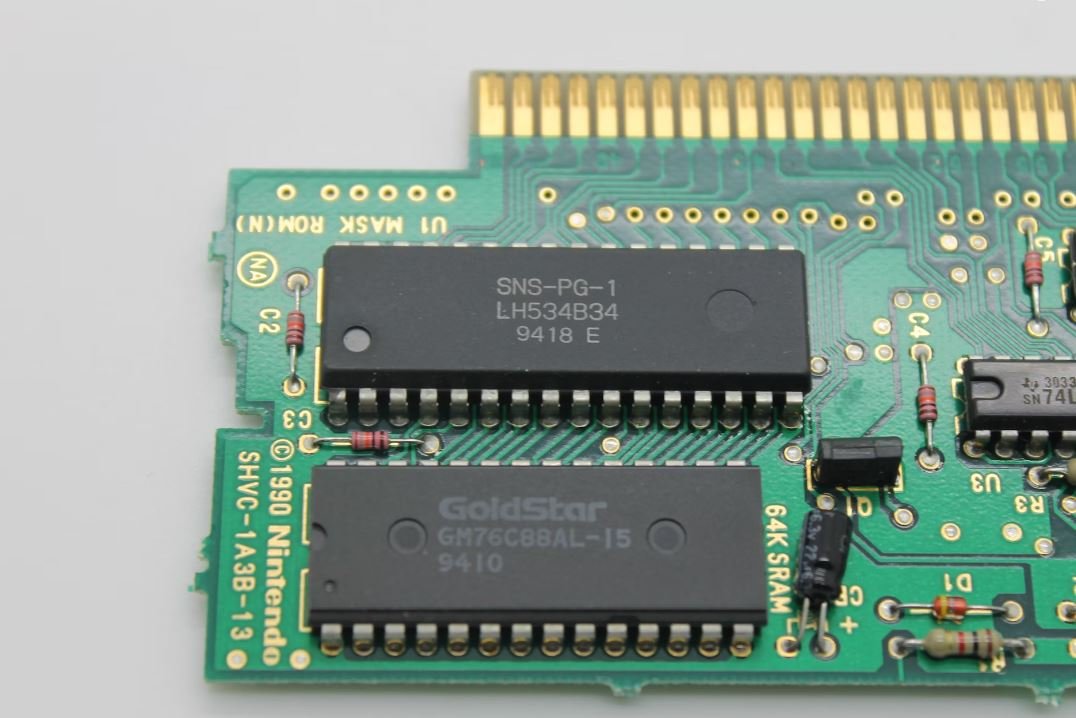Can I Download AI for Free?
Artificial Intelligence (AI) has become an integral part of our lives, powerfully transforming various industries. As the demand for AI tools increases, many individuals wonder if they can download AI for free. In this article, we will explore the possibilities of accessing AI technology without spending a dime.
Key Takeaways:
- Downloading AI for free is possible, but it may have limitations.
- Free AI solutions often lack advanced functionalities.
- Open-source AI frameworks provide accessible options for experimentation.
Understanding Free AI Solutions
When it comes to AI, there are both free and commercial options available. Free AI solutions are typically offered as open-source software or limited versions of commercial products. These solutions can be downloaded and used without paying a licensing fee, but they may have restrictions on usage, data capacity, or feature availability. Additionally, free AI tools generally have less comprehensive documentation and support.
Exploring the world of free AI solutions can be both exciting and challenging.
Open-Source AI Frameworks
One of the most popular ways to access AI for free is through open-source AI frameworks. These frameworks, such as TensorFlow and PyTorch, provide developers with the necessary tools and libraries to build and deploy AI models. They offer a wide range of functionalities, including image recognition, natural language processing, and machine learning algorithms.
With open-source AI frameworks, developers have the freedom to examine and modify the underlying code, allowing for greater flexibility and customization. This fosters a collaborative environment where enthusiasts can contribute to the development of AI technology.
Pros and Cons of Free AI
| Pros | Cons |
|---|---|
| Accessible to everyone | Limited features and functionalities |
| Cost-effective solution | Potential compatibility issues |
| Opportunity for experimentation | Limited documentation and support |
Commercial vs. Free AI Solutions
While free AI solutions offer accessibility, commercial alternatives provide advanced features and comprehensive support. Commercial AI platforms, like IBM Watson and Google Cloud AI, come with robust capabilities, extensive APIs, and professional guidance. These offerings cater to businesses that require deep integration, scalability, and technical assistance.
Free AI solutions are a starting point for individuals seeking hands-on experience with AI technology.
Popular Open-Source AI Frameworks
- TensorFlow
- PyTorch
- Keras
- Caffe
- Theano
Conclusion
As the demand for AI continues to grow, the availability of free AI solutions is expanding. While downloading AI for free is possible and accessible, it often comes with limitations on features, documentation, and support. Open-source AI frameworks offer a valuable opportunity for experimentation and customization, bringing AI technology within reach of enthusiasts and developers. Whether you opt for free or commercial AI solutions, the key is to choose the approach that best aligns with your specific needs and goals.

Common Misconceptions
Artificial Intelligence (AI) Downloads
There are several common misconceptions about downloading AI for free. Many individuals believe that AI is readily available at no cost, but this is not entirely accurate. Here are some clarifications regarding this topic:
- AI platforms generally require significant resources and expertise for development, resulting in companies and developers rarely offering them for free.
- Most AI tools provided for free are typically limited in functionality or have restricted access to certain features.
- Downloading AI without proper knowledge can risk potential security vulnerabilities and malicious use.
Quality and Accuracy of Free AI
An erroneous belief is that free AI downloads are equivalent in quality and accuracy to their paid counterparts. However, this notion is often untrue. Consider the following points:
- Free AI models may lack regular updates and improvements that paid versions receive, leading to outdated and potentially less effective performance.
- Paid AI solutions generally offer better accuracy as they have more resources for training, monitoring, and refining their models.
- Free AI tools often have limited access to datasets, resulting in deficiencies in diversity and breadth of training, affecting their overall quality.
Licensing and Legal Constraints
One common misunderstanding is that AI downloads come with unrestricted usage and legal rights. However, there are several licensing and legal restrictions to consider:
- Many AI models are protected by copyrights, trademarks, and patents, which restrict their usage, distribution, and modification.
- Open-source AI may have specific licensing requirements, such as crediting the original authors or sharing any modifications made to the code.
- Using AI for commercial purposes without proper licenses or permissions can lead to legal consequences and infringement of intellectual property rights.
Compatibility and Technical Requirements
Another misconception is that free AI downloads are universally compatible and do not require specific technical requirements. However, certain limitations exist in terms of compatibility and technical aspects:
- Some AI platforms are designed to work only on certain operating systems, programming languages, or hardware configurations, restricting their usage on different setups.
- Certain AI models require robust computing resources, such as high-performance GPUs or cloud-based services, which may incur additional costs.
- Free AI tools may lack technical support or documentation, making it more challenging to troubleshoot issues or integrate them into existing systems.

Advantages of AI in Healthcare
Artificial Intelligence (AI) has revolutionized the healthcare industry by providing numerous advantages in diagnosis, treatment, and patient care. The following table highlights some of the key benefits of AI in healthcare:
| Advantage | Description |
|---|---|
| Improved Diagnostics | AI algorithms can analyze medical images with great precision, helping to detect diseases at early stages. |
| Personalized Medicine | AI can analyze massive amounts of patient data to create tailored treatment plans and predict optimal outcomes. |
| Enhanced Patient Monitoring | AI-powered devices can continuously monitor patients, providing real-time alerts for any abnormalities. |
| Streamlined Administrative Tasks | By automating administrative tasks, AI reduces paperwork and allows healthcare professionals to focus on patients. |
| Accurate Predictive Analytics | Using historical data, AI can predict disease development, epidemics, and optimal resource allocation. |
Applications of AI in Education
Artificial Intelligence (AI) has immense potential in transforming traditional education methods. The table below illustrates various applications of AI in education:
| Application | Description |
|---|---|
| Intelligent Tutoring Systems | AI-powered tutors provide personalized learning experiences, adapting to students’ strengths and weaknesses. |
| Automated Grading | AI algorithms can efficiently grade assignments, reducing the burden on teachers and providing faster feedback to students. |
| Virtual Reality Learning | AI combined with virtual reality (VR) enhances interactive learning, creating immersive educational experiences. |
| Smart Content | AI algorithms can analyze vast amounts of educational content, recommending personalized resources to students. |
| Plagiarism Detection | With AI-based plagiarism detection systems, educators can identify instances of academic dishonesty more efficiently. |
AI in Finance: Benefits and Challenges
Artificial Intelligence (AI) has significantly impacted the finance industry, introducing both advantages and challenges. The following table highlights the benefits and challenges associated with AI in finance:
| Benefits | Challenges |
|---|---|
| Automated Trading | Data Privacy and Security |
| Fraud Detection | Algorithmic Bias |
| Risk Assessment | Lack of Human Interaction |
| Improved Customer Service | Job Displacement |
| Efficient Data Analysis | Regulatory Compliance |
Impact of AI on Job Market
The integration of Artificial Intelligence (AI) technology in various industries has sparked discussions on its impact on the job market. The table below explores the potential consequences:
| Consequence | Description |
|---|---|
| Job Displacement | Some repetitive tasks may be automated, potentially leading to job loss or shifts in employment demands. |
| Job Creation | AI development and implementation create new job opportunities in areas such as AI research, programming, and maintenance. |
| Skills Upgrading | The demand for new skills may arise, requiring individuals to learn and adapt to work alongside AI systems efficiently. |
| Altered Job Roles | AI technology can augment human capabilities, leading to the evolution of job roles and the need for multidisciplinary skills. |
| Job Market Polarization | AI may contribute to a polarization of the job market, with highly skilled AI professionals in demand and low-skilled workers facing challenges. |
The Ethical Implications of AI
The rapid advancements in Artificial Intelligence (AI) raise important ethical considerations. The table below presents some key ethical implications associated with AI:
| Ethical Implication | Description |
|---|---|
| Privacy Concerns | AI systems often gather and process vast amounts of personal data, leading to potential breaches and privacy infringement. |
| Algorithmic Bias | AI algorithms may exhibit biases, leading to discriminatory decisions or perpetuating existing societal inequalities. |
| Autonomous Weapon Systems | The development of lethal AI-powered weapons poses ethical concerns around their decision-making capabilities and potential misuse. |
| Unemployment and Inequality | AI-driven automation may exacerbate income inequality and contribute to the displacement of certain job sectors. |
| Human Responsibility | Decisions made by AI systems raise questions of accountability and the extent of human responsibility for AI-driven outcomes. |
AI in Transportation: Advancements and Challenges
Artificial Intelligence (AI) has revolutionized the transportation industry, introducing significant advancements and notable challenges alike. The following table illustrates some key aspects:
| Advancements | Challenges |
|---|---|
| Autonomous Vehicles | Lack of Legislation |
| Traffic Management | Data Security and Privacy |
| Ride-Sharing | Technological Dependence |
| Efficient Route Planning | Public Acceptance |
| Smart Infrastructure | Ethical Dilemmas |
AI in Retail: Transforming Customer Experience
Artificial Intelligence (AI) has significantly transformed the retail sector, enhancing the overall customer experience. The table below highlights various ways AI has revolutionized retail:
| Transformation | Description |
|---|---|
| Personalized Recommendations | AI algorithms analyze customer data to offer tailored product suggestions, improving customer satisfaction. |
| Chatbots for Customer Support | AI-powered chatbots provide immediate assistance, minimizing wait times and improving customer service. |
| Inventory Management | AI can optimize stock levels and predict demand, reducing out-of-stock situations and excess inventory. |
| Virtual Try-On | Using AI and augmented reality (AR), customers can virtually try on products, enhancing the online shopping experience. |
| Dynamic Pricing | AI algorithms adjust prices based on market demand, maximizing revenue while staying competitive. |
AI in Agriculture: Improving Food Production
Artificial Intelligence (AI) is revolutionizing the agricultural sector, leading to increased efficiency and improved food production. The table below highlights some key applications of AI in agriculture:
| Application | Description |
|---|---|
| Automated Irrigation Systems | AI sensors analyze soil moisture levels, weather data, and plant health to optimize irrigation, conserving water resources. |
| Precision Farming | AI-driven machines and drones monitor crop health, enabling targeted treatments and increasing yield. |
| Pest and Disease Detection | AI algorithms can identify pests, diseases, and nutrient deficiencies, allowing timely intervention and reducing crop damage. |
| Autonomous Harvesting | AI-powered robots can autonomously harvest crops, reducing labor costs and improving efficiency. |
| Climate Modeling | AI models analyze climate data to predict conditions and optimize planting strategies, helping farmers make informed decisions. |
AI in Gaming: Enhancing User Experience
Artificial Intelligence (AI) has significantly enhanced the gaming industry, providing immersive experiences and intelligent gameplay. The following table showcases some AI applications in gaming:
| Application | Description |
|---|---|
| Non-Player Characters (NPCs) | AI-driven NPCs exhibit realistic behavior and adapt to player actions, enhancing the game’s immersion. |
| Procedural Content Generation | AI algorithms generate dynamic game content, such as levels, environments, or quests, ensuring unique player experiences. |
| Adaptive Difficulty | AI adjusts game difficulty based on player performance, providing a challenging but enjoyable experience. |
| Real-Time Physics Simulation | AI enables realistic physics calculations and simulations, enhancing the authenticity of in-game interactions. |
| Emotion Recognition | AI can analyze player emotions through facial expressions, voice, or biometric data, influencing gameplay or providing tailored experiences. |
In conclusion, the widespread implementation of Artificial Intelligence (AI) across various industries has brought about numerous benefits and challenges. AI has transformed healthcare by improving diagnostics and patient care, revolutionized education through personalized learning and virtual reality experiences, and had significant impacts on finance, job markets, transportation, retail, agriculture, and gaming. However, ethical implications, privacy concerns, algorithmic biases, and potential job displacement are important considerations that need to be carefully addressed. As AI continues to evolve, it is crucial to strike a balance between harnessing its immense potential while ensuring responsible and ethical deployment to create a better future for humanity.
Can I Download AI for Free
FAQs
-
What is AI?
AI, or Artificial Intelligence, refers to the simulation of human intelligence in machines that are programmed to think and learn like humans. It involves various techniques, algorithms, and computer systems that enable machines to perform tasks with human-like intelligence. -
Can AI be downloaded for free?
Yes, there are various AI frameworks and tools available for free download. Many open-source AI libraries and platforms such as TensorFlow and PyTorch provide free access to their software. -
Where can I download AI for free?
AI frameworks can be downloaded for free from their respective official websites. Additionally, popular code repositories such as GitHub often have open-source AI projects available for free download. -
What are some popular free AI tools?
There are several popular free AI tools, including TensorFlow, PyTorch, scikit-learn, Keras, and Theano. These tools provide a wide range of functionalities and are widely used in the AI community. -
Can I use free AI tools for commercial purposes?
Yes, many free AI tools have permissive licenses that allow them to be used for commercial purposes. However, it is always advisable to check the specific licensing terms of the tool you intend to use to ensure compliance. -
Do I need programming skills to use free AI tools?
Yes, most AI tools require programming skills to some extent. While some tools may provide simplified interfaces or high-level APIs, having a good understanding of programming concepts and languages like Python is generally beneficial when working with AI tools. -
Are there any limitations to free AI tools?
While free AI tools offer powerful capabilities, they may have limitations compared to premium or proprietary tools. Limitations can include fewer features, less extensive documentation, and potentially lower performance on certain tasks. However, the open-source nature often allows for community contributions and improvements over time. -
Can I contribute to free AI tools?
Yes, many free AI tools are open-source projects, meaning that anyone can contribute to their development. Contributing can involve submitting bug reports, adding new features, improving documentation, or participating in the community to help enhance the tools. -
Are there free AI tools suitable for beginners?
Yes, there are several free AI tools designed specifically for beginners. Libraries like scikit-learn and simple deep learning frameworks like Keras offer user-friendly interfaces and extensive documentation, making them a great starting point for beginners in AI. -
Where can I find tutorials for using free AI tools?
Tutorials for using free AI tools can be found on various websites, including official documentation websites for the tools themselves, YouTube tutorials, AI-focused blogs, and online learning platforms like Coursera and Udemy.




